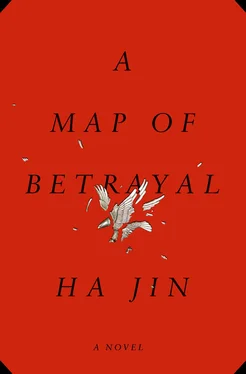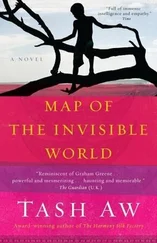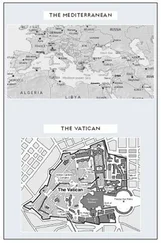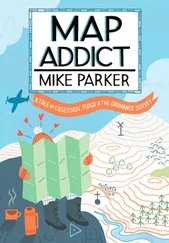“I don’t get it.”
“Don’t ask so many questions. I’ve had it with pastries that already made me diabetic. I just don’t want to have anything to do with the bakery anymore.”
Nellie looked in wonder at his pallid face, then burst into laughter. In spite of his gloominess, Gary did have a dry sense of humor, which would bubble up every now and then.
So Nellie bought the business from Peggy and signed the paperwork alone. The week after the purchase, Peggy left for New Orleans. Nellie kept the two staffers while considering whether to hire another hand, but she thought better of it. She changed the bakery’s name to Nellie’s Kitchen. She disliked the word “Kitchen” but dared not alter the original name too much for fear of ruining the luck. The business, small as it was, had been a good moneymaker.
She had noticed some Dunkin’ Donuts products in supermarkets. From then on, her bakery began offering two Dunkin’ Donuts coffees: Original Blend and Dunkin’ Dark, besides three previous kinds. Determined to make Nellie’s Kitchen into a combination of bakery and coffee shop, she had a sign hung beside the front door that announced: “We have Dunkin’ coffee!” Unsure if that might get her in trouble, she talked to Gary about it. He assured her that it would be all right if the coffees were for sale in grocery stores.
Now that Nellie’s life seemed secured for the future, Gary wrote a request to his Chinese superiors, asking to be called back. He said he was ill and exhausted and very likely to retire from the CIA before long, so it was about time to end his career, which had lasted three decades. During his years abroad he had served the Party and the country heart and soul. It was his sincere wish to return and join his family so he could spend his remaining years peacefully and die on his native soil. He even attached the latest report from his doctor, which stated that his fasting blood sugar count was 172, clearly a case of diabetes.
He delivered the request to Father Murray and asked him to have it sent to their higher-ups without delay. He told the clergyman, “I’m more homesick as I’m getting older. I hope I can go back soon.”
“You’re lucky to have a homeland to return to,” Murray said, his eyes glazed over. His whiskered face was so pale that he might pass for a white; even his nostrils were oval, and there was hair on the backs of his hands. “I don’t know where my home is,” he continued. “It used to be the little pastel blue bungalow surrounded by a stone wall in the alley where my mother lived. After she died, the house changed hands, and Manila doesn’t mean a thing to me anymore.”
“How about your older sister?” Gary asked.
“She lives in New Zealand now.”
“But you belong to your church, don’t you? You’re a padre, different from us earthlings.” Gary had always admired the ease and equanimity with which the priest carried himself. Now he recognized another suffering man, another lonely soul.
Murray said, “I wish I were a believer.”
“I see.” Gary tried to fathom the depth of desolation that the priest must have suffered if he didn’t believe in the church he’d been serving. Gary confessed, “I’m afraid my heart won’t hold out for long and I might fall to pieces here.” Again the numbing pain stirred in his chest while he tried hard not to laugh. Of late when he laughed out loud, he’d often lost control and couldn’t stop his tears. He knew he had reached the point where the pressure might break him anytime.
“You’ll be okay,” Murray said. “You’ve done a great service to your motherland. I’m sure they’ll welcome you home as an honored son. You deserve a grand return to your country.”
“Which country is yours then?”
“I don’t know. I’ve been helping China only out of ancestral loyalty and out of my disgust at colonialism and imperialism, but I wouldn’t be able to live there.”
“In a way, that’s not bad,” Gary said. “To have no home on earth. That can make you detached and more like a religious man.”
“You know, for me, home’s not a fixed entity but an emotion, a longing.”
“I admire that — I mean you can find home within yourself.”
“I don’t know if I can, but I’ve been trying.”
Gary managed a small laugh while Murray grinned.
Following that meeting came Gary’s long wait for the official reply from Beijing.

Henry and I were in the hallway of our apartment building hanging a large picture that I’d brought back from Beijing. It was an oil painting that showed clusters of blooming rainbow cacti. I’d just had it framed. Two tall men, one thirtyish and the other about fifty, came in through the front door, both in dark suits and sky-blue ties. One of them asked us where the Cohens’ was.
“I’m Henry Cohen,” my husband said and came down the stepladder.
The two men showed their FBI badges — one was named Simpson and the other Clifton. I glanced at their armpits and could tell they were bearing sidearms in shoulder holsters. The older one asked Henry, “Can you spare a minute? We have a few questions for you, Mr. Cohen.”
“Okay, fire away.”
“Can we talk somewhere else?” the man went on.
“Sure, but what d’you want to know?”
“About your recent purchases of some Intel chips.”
Henry put his hand on my shoulder. “Can my wife come with me?”
I said, “Hi, I’m Lilian.” I didn’t hold out my hand, uncertain about their intention.
“Sure thing, she can join us,” the younger man told Henry in a voice that indicated that he was not a mere sidekick to his colleague.
I felt a bit relieved as I realized this might not be an interrogation. They followed us down the hall to our apartment. Once we had sat down in the living room, Officer Clifton, the older one, said to Henry, “We would like to know how you have used the microchips you bought recently.”
The younger officer, Simpson, added, “Or did you sell them to somebody?” He took out a pen and put a yellow legal pad on his lap.
“Well, I bought them for a friend,” Henry said.
“Is it illegal to acquire them?” I asked.
“Not really,” Clifton answered. “But they’re items banned from export to certain countries.”
“Henry bought them for my nephew, who had a computer company outside Boston.”
“What’s his name?” asked Simpson.
“Ben Liang,” Henry said.
Clifton opened his briefcase and took out a manila folder. “Is this man your nephew?” He handed me a photo.
The snapshot showed a younger Ben, whose sweaty face still had a shadow of baby fat and who was wearing shorts and an undershirt, holding a basketball under his arm. “Yes, that’s my nephew,” I replied, reflecting on the photo, probably taken before he had come to the States.
“He’s a fine young man,” Henry said. “We’re friends.”
“Has it ever occurred to you that he might ship the chips to the People’s Republic of China?” Clifton continued, squinting his eyes and tilting his square chin.
“I have no clue about their destinations at all,” Henry said. “Look, Ben has a computer business, so it’s natural for him to buy all sorts of parts. I never thought about the legality of the acquisitions because the chips were out there for sale. I just bought them on his behalf.”
“Why wouldn’t he purchase them by himself?” Clifton asked.
“He said his Chinese name, Liang, often incurred racial prejudice.”
“Can you elaborate on that?” Simpson said and uncrossed his long legs.
“Ben’s orders would arrive too late, and from time to time they simply didn’t come. That’s what he told me, and I believe it’s true.”
Читать дальше












